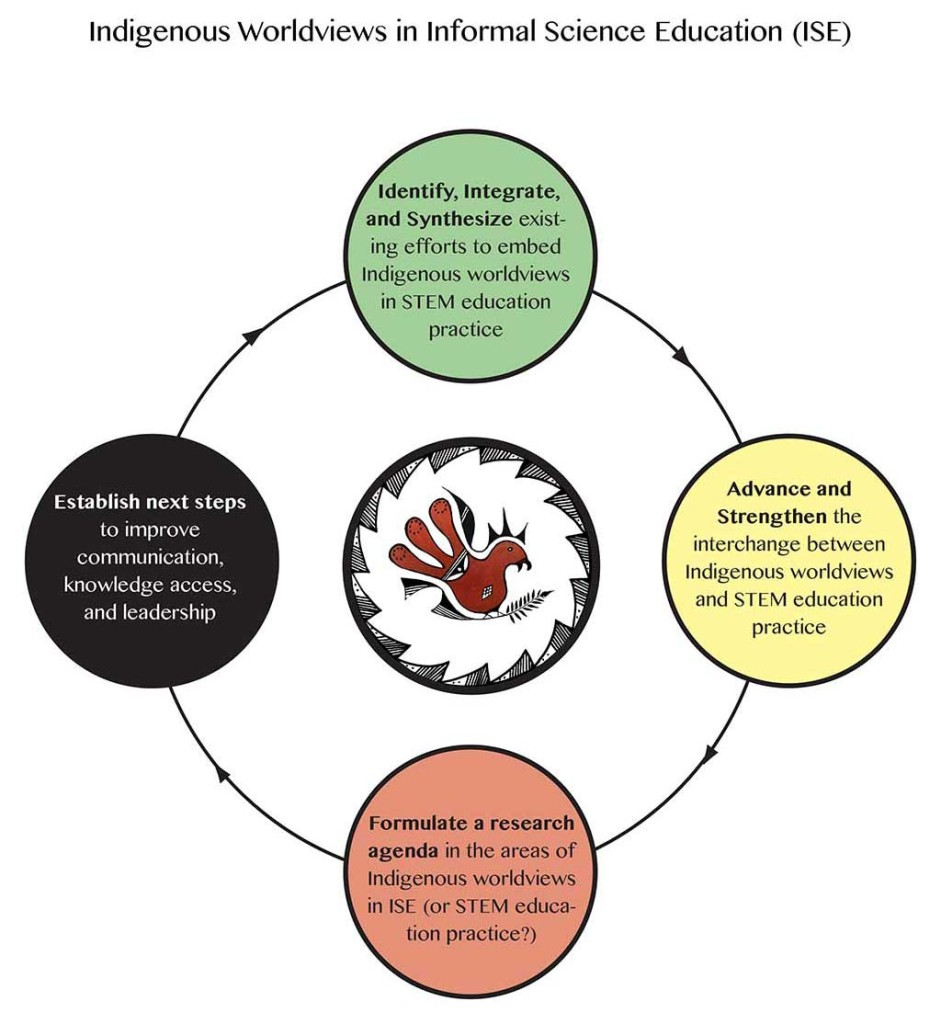Home › Holistic Education
Holistic Education

- Strand Leader: Glen Aikenhead, Verlie-Ann Malina-Wright
- Strand Support: Amethyst First Rider
- Strand Synthesizer: Pam Woodis
- Webinar: August 14
- Why are enriching environments foundational to encouraging students to participate in being, doing, knowing, across two knowledge systems (Indigenous and scientific)?
- How can educators bridge the reductionist content of science and transform their teaching and learning approaches to include holistic understandings of nature held by Indigenous students?
- Where in schools and communities can we create a system for including youth/adults who have gifts more in tune with Indigenous wisdom while learning and applying Euro-American academic subject content, and achieving on assessment indicators?
- What are some essential culture-based performance indicators of holistic place-based learning that may be complementary to, integrated into, or independent of the content and context of learning; including applications to new ways of discovery in a world of rapidly changing knowledge and innovative technologies?
- What education contexts (school administration, community, state departments of education, national priorities) enhance place-based learning through intergenerational lifelong learning, which leads to readiness for college, a career, and contributing to one’s community?
- What features of current education contexts (school administration, community, state departments of education, national priorities) stifle place-based learning?
- What metaphors help you create useful definitions of holistic education in STEM or STREAM (science, technology, reading literacies, engineering, arts AutoCAD creative media integration, and math)?
- What strengths are foundational to a shift from our current education system to one that is intergenerational, nurtures lifelong-learning, and is ever evolving; a shift that will require a cyclical process of connecting our ways of teaching and learning along the continuum of past, present, and future; as well as past-to-future continuums of systems not yet developed?
- Why do we need to transform ourselves, our schools/communities, and our nations into where we want to be?
- How do we do it?
